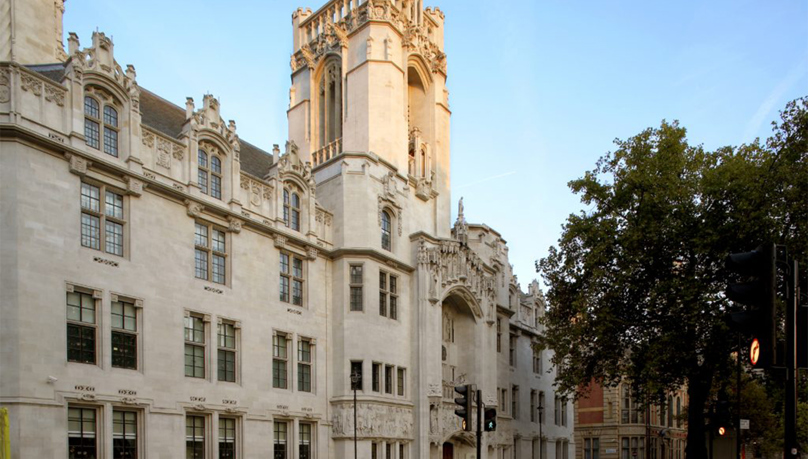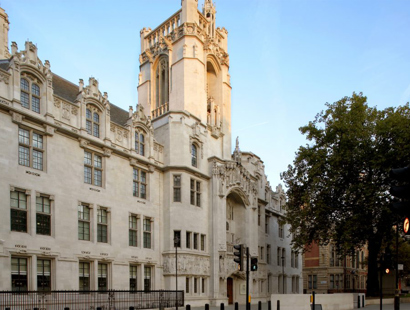
Gender equality law
The UK Supreme Court has delivered its judgment in For Women Scotland Ltd v The Scottish Ministers [2025] UKSC 16 - a significant decision with implications for how people in the UK are protected from unlawful discrimination on the grounds of “sex” and “gender reassignment”.
What did the Supreme Court decide?
At the heart of the case was the question of whether someone with a gender recognition certificate (GRC), legally recognised as female, is considered a “woman” under the Equality Act 2010. The Court ruled that, for the purposes of this legislation, the term “woman” refers to “biological” sex.
The decision has a particular impact on the parts of the Equality Act that permit service providers to treat people differently based on sex—for example, in single-sex spaces or services.
However, it also leaves a number of complex questions unanswered and has led to uncertainty about how the law should now be applied in practice.

How our solicitors can help you navigate gender equality law after the For Women Scotland judgment
We provide legal guidance that is practical, nuanced, and tailored to your specific situation.
Understandably, many individuals and organisations are now questioning what the Supreme Court’s decision means in practice.
From trans people worried about their legal protections and human rights, to service providers unsure about when and how they can lawfully apply single-sex policies—the uncertainty is widespread.
The Equality Act has always required a careful balancing of rights. This decision doesn’t remove that responsibility and there is complexity in its application. In fact, it reinforces the importance of context, proportionality, and lawful justification when making decisions that involve the protected characteristic of sex.
Whether you're a service provider, charity, school, employer, or individual, we can help you:
- Understand how the judgment affects your legal rights and obligations
- Review and, if necessary, revise your policies to ensure they remain legally sound
- Manage risk while remaining true to your organisation’s values
- Navigate difficult decisions around single-sex spaces and trans inclusion
- Respond confidently and lawfully to questions from staff, service users, or trustees
We don’t offer one-size-fits-all answers. We offer practical, tailored advice on the application of the law—to help you make informed decisions with clarity and care.
Lui Asquith is a complete star. They really understand the Equality Act 2010 and the bigger picture.
Why choose Russell-Cooke for advice on gender equality law after the For Women Scotland judgment?
We understand that this judgment has raised important legal questions and questions of practical application—for people and organisations.
In navigating complex and sensitive issues, where values, rights, and responsibilities may intersect, we are here to support you in making informed and lawful decisions.
Russell-Cooke’s public law litigation team represented Amnesty International UK in this case. They work closely with our specialist charity and discrimination lawyers to give clients the benefit of deep expertise in equality law and its practical application.
Our commitment is to offer:
- Thoughtful, legally robust advice
- Sensitivity to diverse perspectives and needs
- Practical steps tailored to your organisation or personal circumstances

Common questions we’re asked
- What are my individual/human rights following this ruling?
- Do we need to change how we run or structure our services?
- How does this affect our single-sex provision or trans inclusion policies?
- We’re a charity for women – can we continue to provide services to trans women?
- Our membership association is only open to women, does this mean we have to admit trans men because they would be classed as “biological” women?
- Can we require our staff to use people’s preferred pronouns?
- Are we at risk of unlawful discrimination—in either direction?
- What practical steps should we take to remain compliant and respectful of all rights?
Whatever your question, we offer clear, balanced guidance advice to help you navigate options and potential risks.
Key developments following the Supreme Court’s judgment in For Women Scotland Ltd v The Scottish Ministers
16 April 2025
FWS v The Scottish Ministers decision handed down.
25 April 2025
Equality and Human Rights Commission (EHRC) publish an interim update.
30 April 2025
EHRC added detail to interim update about toilet provision for schools in Scotland.
1 May 2025
Lord Alton, Chair of the Joint Committee on Human Rights, writes a letter to the Chair of the EHRC requesting information and clarification following the Supreme Court’s judgment and the EHRC’s interim update.
7 May 2025
Sarah Owen MP, Chair of the Women and Equalities Committee, writes a letter to the Chair of the EHRC requesting information and clarification following the Supreme Court’s judgment and the EHRC’s interim update.
16 May 2025
Good Law Project's pre action letter to the EHRC on its interim update. Prospective claimants include a trans woman, an intersex woman and a trans man, as well as GLP
20 May 2025
The Equality and Human Rights Commission consultation went live.
6 June 2025
Updated timing for when the Code of Practice will be submitted to the UK government for ministerial approval, namely that they “…aim to provide the updated Code of Practice to the UK government by summer, for ministerial approval ahead of the full draft Code being laid in Parliament after the summer recess.”).
24 June 2025
EHRC added detail to interim update in section on facilities in workplaces to clarify what is required under the Workplace (Health, Safety and Welfare) Regulations 1992.
30 June 2025
The Equality and Human Rights Commission consultation closes.
15 October 2025
The EHRC removed its interim update from its website and replaced it with a holding response for the Code.
5 November 2025
Baroness Smith of Malvern (speaking in the House of Lords) confirms approval of the draft Services Code is delayed pending a request for the EHRC to provide a costs assessment to enable the government to determine whether a full regulatory impact assessment is required.
Carla Whalen's expertise in employment law is excellent. She instils the confidence you want from legal counsel.
Get in touch
If you have any questions how the UK Supreme Court’s decision affects you or your organisation, or if you would like a confidential chat, you can contact our experts at Russell-Cooke by telephone on +44 (0)20 3826 7479 or complete our enquiry form.
Related insights
The latest news and insights from our gender equality law team.

15.05.2025
Trans people fearing arrest due to ‘confusion’ around Supreme Court ruling, say campaigners—The Independent





